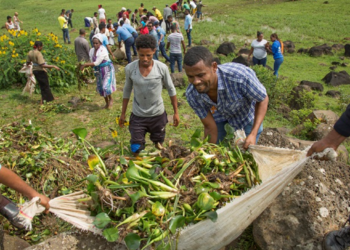Million dollar investment in mariculture to feed Kenya – Kenya faces a growing challenge in local fish production as fish imports increase. With annual fish consumption at 600,000 tonnes and domestic production at only 400,000 tonnes, the country relies mainly on imports from China. To reverse this trend, Kenya is focusing on mariculture, with a $100 million agreement with the World Bank.
The initiative, called the Marine Fisheries and Socioeconomic Development Project (KEMSFED), aims to develop sustainability in fisheries and increase the incomes of coastal fishing communities. It all revolves around the ‘National Resource and Training Centre for Mariculture (NAMARET)’ in Shimoni, Kwale County. The project has been delayed due to construction problems, affecting the opening of the centre.
Mariculture could be a vital solution to reduce dependence on imports and ensure Kenya’s food security. Its implementation requires improvements in agricultural technology, the establishment of fish nurseries and large-scale production of fish seeds.
Mariculture, practised in coastal areas, could be the key to meeting the growing demand for fish in the country. However, the lack of government support and sound regulatory policy are significant challenges that must be overcome to ensure the sustainable success of mariculture in Kenya.
Million dollar investment in mariculture to feed Kenya









